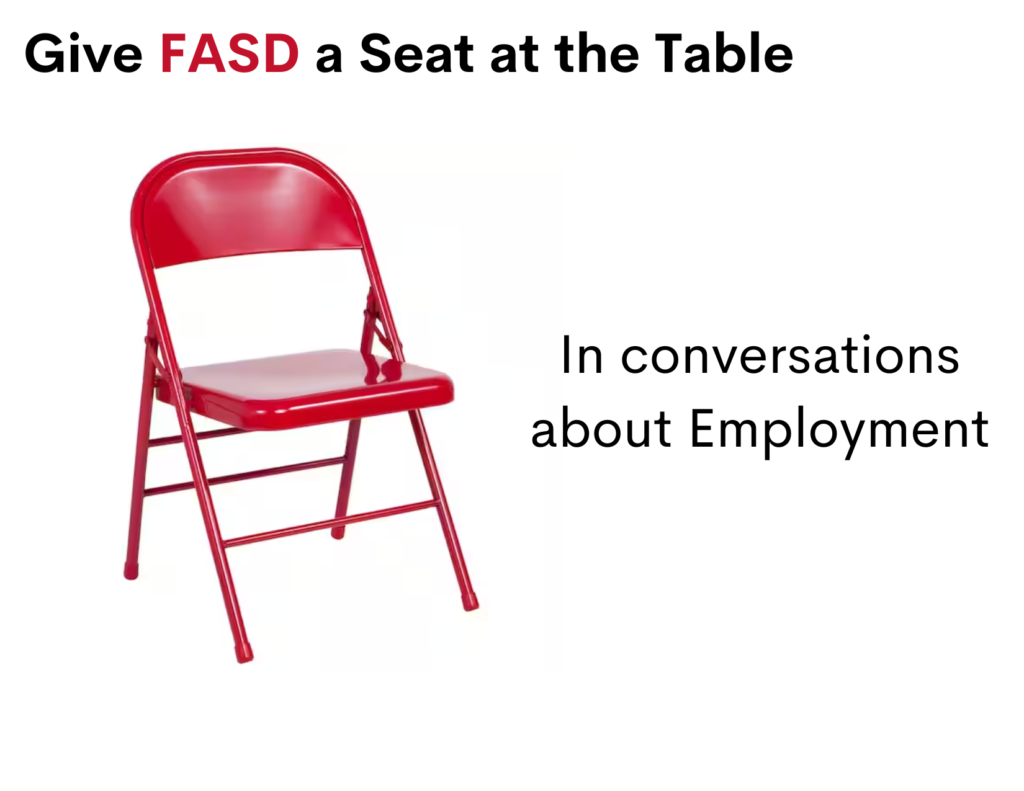The Department of Labor’s Employment First initiative supports the idea that all people, including those with disabilities requiring increased supports, are deserving and capable of integrated participation in the general workforce. This approach incentivizes state and local governments to adopt practices that support Competitive Integrated Employment (CIE). In this case, CIE is defined as full or time part where the individual:
- Earns minimum wage or higher and their wage is comparable to other employees in similar positions without disabilities;
- Receives the same benefits as other employees without disabilities;
- Interacts with other employees without disabilities;
- Is given the same opportunities for advancement as other employees without disabilities.
At the core of Employment First is the belief that CIE is the preferred option for adults with disabilities regarding employment. This means state and local governments should adopt practices and policies prioritizing integrated employment and job training rather than non-employment options and day programs. The assumption for those without disabilities is that they will gain employment, while people with disabilities often have to prove their “readiness”. CIE does away with this biased assumption, removing a barrier to employment and full integration into the workforce.
Since 2012, 24 states have passed legislation affirming integrated employment as the preferred option over other service options, while 17 states have an executive order or some other non-legislative directive. The degree to which each state follows through with positive change based on CIE varies, with states like Oregon and Washington having cross-agency collaboration supporting employment and others like West Virginia and Nevada creating task forces but not yet passing legislation.

Each person with FASD has unique strengths and abilities that can help them succeed in the workplace. By providing the necessary supports and removing barriers to employment, people with FASD can work in integrated spaces and receive the same opportunities as their peers without disabilities. This can lead to improved outcomes like increased self-esteem, greater independence, and the acquisition of vital life and job skills then can further their careers.
To learn more about how employers can help their employees with FASD, check out this fact sheet.
To learn more about what your state is doing with Employment First policies click here.

